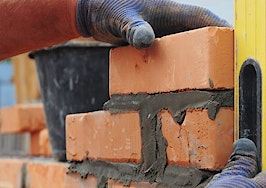A so-called “silver tsunami,” is set to hit the housing market over the next two decades, with the baby boomer generation expected to vacate currently occupied homes at a much higher rate, according to a new Zillow study.
With much written about the reticence of millennials to dive into homeownership – whether it be a need for mobility or mounting debt– the question is: who will buy all the boomer’s homes?
An estimated 27 percent of currently owner-occupied homes are set to hit the market by 2037, according to the Zillow study. From 2007 to 2017, roughly 730,000 homes were released into the market by seniors aged 60 and older.
From 2017 to 2027, that number is estimated will reach 920,000. From 2027 to 2037, it is estimated that 1.17 million homes will be released into the market by seniors aged 60 or older.
And while millennials struggle to find a path towards homeownership in a currently supply-constrained housing market, the impact of the wave of new homes won’t be felt equally across the country.
“While virtually all areas will feel the effects to some degree – between one-fifth and one-third of the current owner-occupied housing stock was impacted in every metro analyzed – this wave won’t hit all at once and won’t strike all markets equally,” the study reads. “Retirement hubs like Florida and Arizona are likely to feel the sharpest impact.”
“If demand erodes because fewer people choose to retire there in the coming years, those areas might end up with excess housing,” the study continues. “Also heavily impacted will be regions like the Rust Belt, which saw younger people move away in recent decades, leaving older generations to make up a larger share of the population”
The communities where young people are moving – to find more affordability than on the coasts – like Salt Lake City, Atlanta, Austin, Dallas and Houston are likely to be the metro areas that will be least affected.
“Whether this housing is appropriately located, priced and styled to meet future demand will be an important factor in how it pairs with new construction to alleviate today’s housing shortage,” the study reads. “It seems likely that the construction industry in the coming two decades will place a greater emphasis than before on updating existing properties.”









